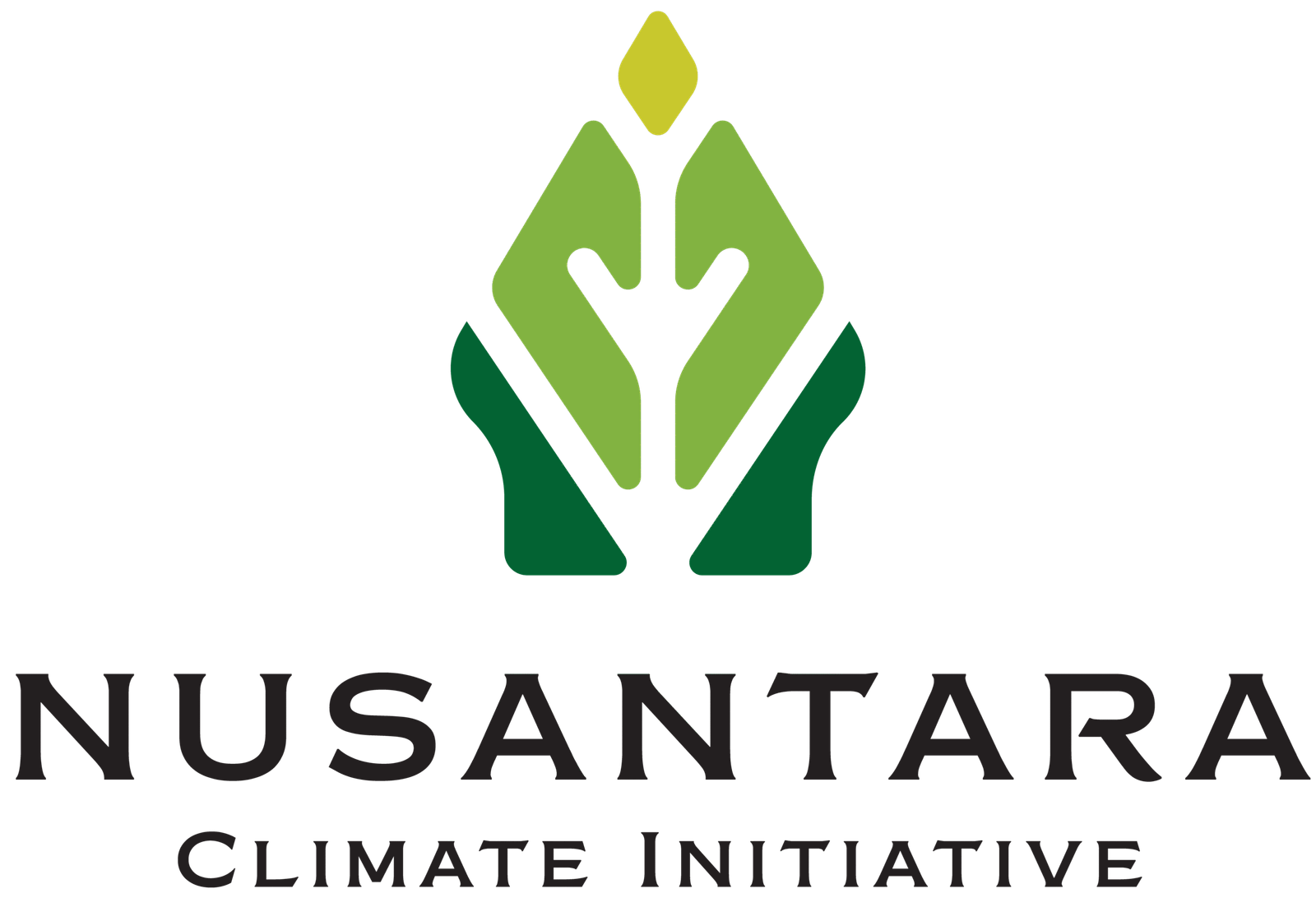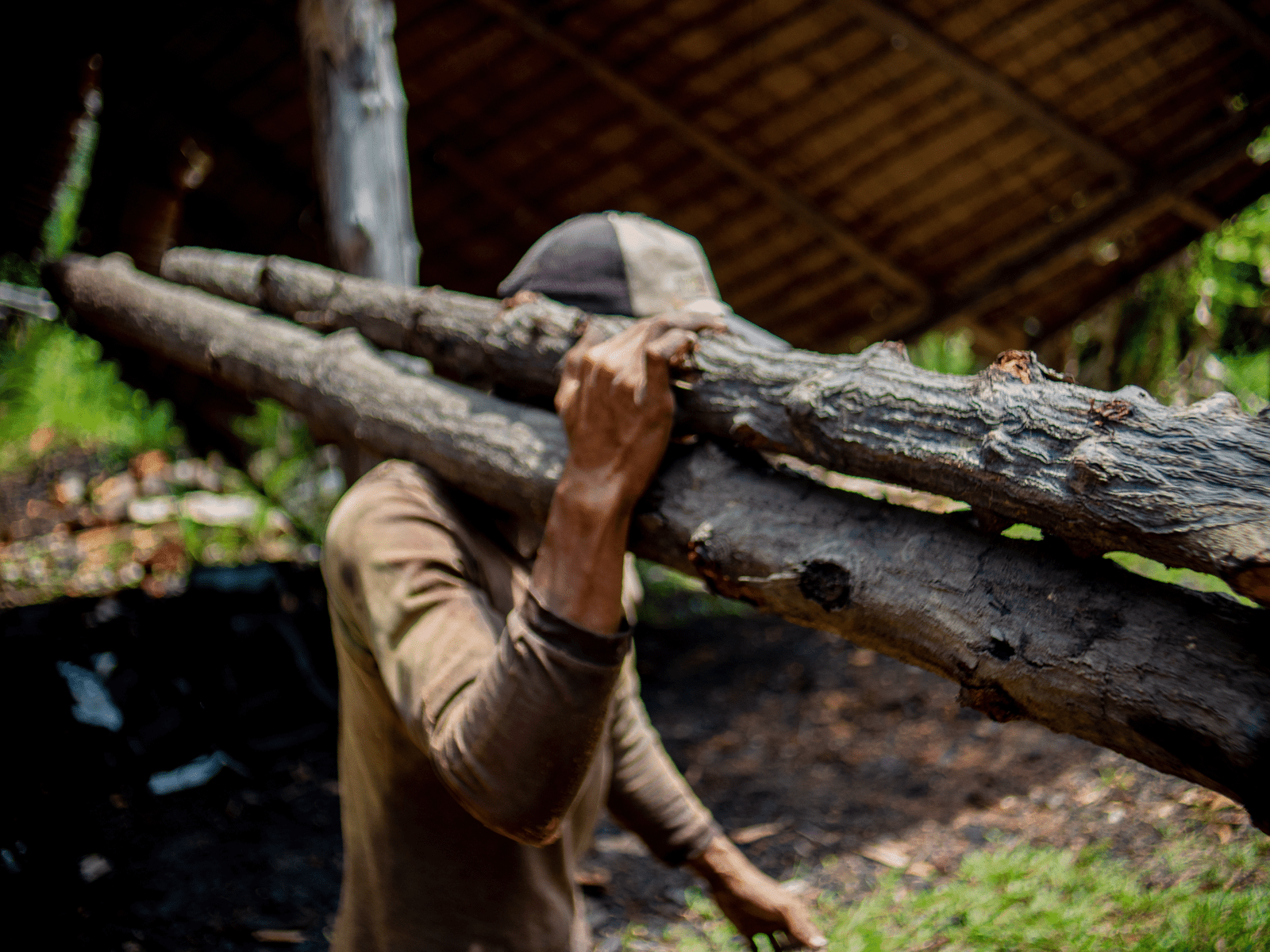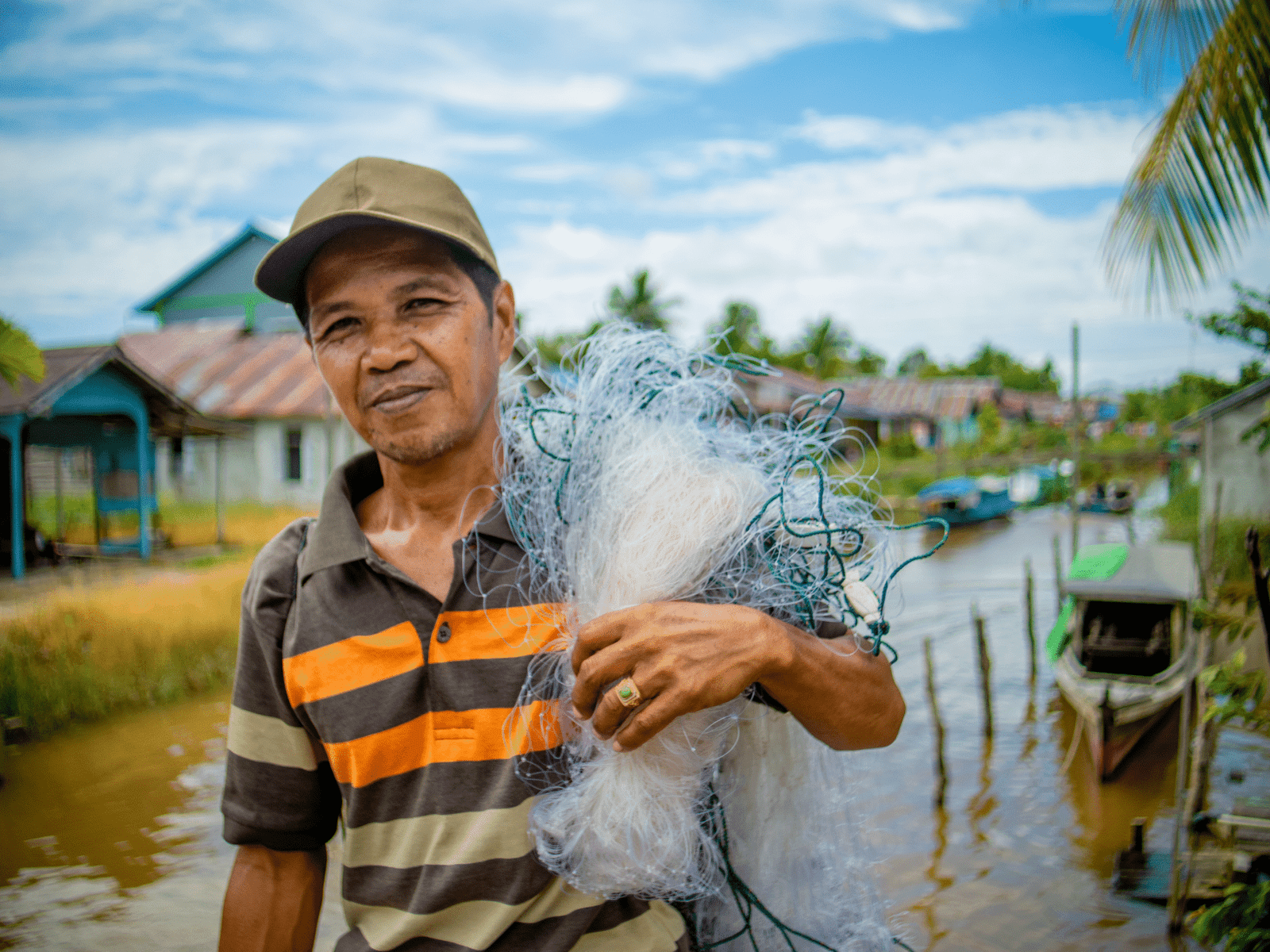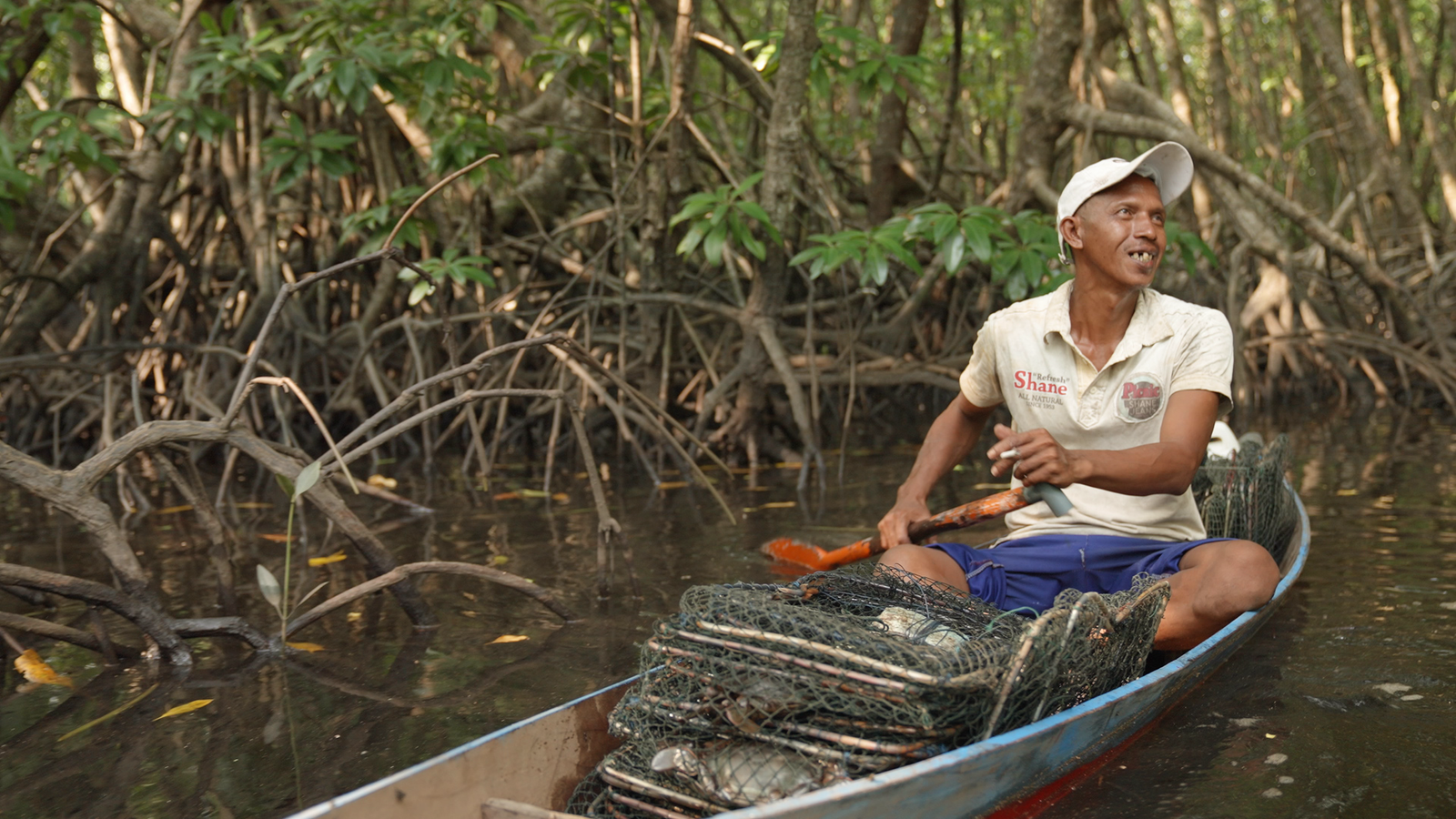Protecting Mangroves, Protecting Livelihoods
The seemingly untouched mangrove forests of Kubu Raya’s Kandelia Alam region in West Kalimantan, accessible only by boat through winding rivers, hold a critical reality beneath their striking, prop-rooted beauty. These forests are not just rich ecosystems but nature’s sentinels-shielding coastlines from erosion and storms, serving as vital carbon sinks, and nurturing marine biodiversity.
Yet, these mangroves are part of a globally threatened habitat. The Global Mangrove Alliance’s 2024 report, The State of the World’s Mangroves, presents an alarming statistic: a 43% reduction in global mangrove forests between 2000 and 2020. The consequences of this loss are devastating, not just for biodiversity but for coastal communities that depend on mangroves for their livelihoods, cultural heritage, and protection from climate change impacts.
Batu Ampar: A Community on the Frontlines of Conservation & Economic Survival
For the 9,191 residents of Batu Ampar Village, mangroves are more than just trees. They are the lifeblood of an economy built around traditional fishing and crab harvesting. Since the 1980s, Batu Ampar’s fishers have relied on the Kandelia Alam (KLIA) concession area, using small wooden boats (under 5 gross tonnes) and folding traps (bubu) to harvest mud crabs and tapered fish. The village’s Crab Joint Business Group (KUB), a 25-member cooperative, harvests up to two tonnes of crabs each month, making crab fishing a significant contributor to the local economy.
“The crabs are getting smaller,” says Pak Mulyadi, head of KUB. “We have to go farther out to find them, and some nights, we return home with nothing. Their dependence on seasonal catches (primarily between December and April) makes them particularly vulnerable. During peak months, each fisherman deploys up to 100 bubu traps per night, but declining stocks and environmental degradation make this an increasingly difficult way of life.
The Threat: Overfishing & Illegal Logging
Overfishing is a growing concern, not just in Batu Ampar but globally. Reports from FAO (Food and Agriculture Organization) indicate that half of the world’s fisheries are overfished, while another 40% are fished to their maximum capacity. In Batu Ampar, the demand for mud crabs has led to increased harvesting of undersized crabs (less than 11cm) and egg-bearing females, despite government restrictions. The pressure from urban markets drives this unsustainable practice, forcing fishers to venture further into the mangroves to maintain their income.
Illegal mangrove logging for charcoal production further worsens the crisis.
Beyond overfishing, Batu Ampar’s mangroves are under threat from charcoal producers, who cut trees for fuel. This destruction of mangrove habitats eliminates crucial breeding grounds for marine species, further accelerating fishery decline. Fishermen report a staggering drop in the number of “super-sized” crabs compared to a decade ago. Without intervention, this pattern mirrors the global trend, where coastal economies collapse due to short-term exploitation of natural resources.
Struggles & Emerging Solutions
The combined effects of overfishing and mangrove degradation have placed Batu Ampar’s economy at risk. Limited awareness of sustainable resource management, along with a lack of alternative livelihoods, means that many in the community continue harmful practices out of economic necessity.
Government bodies, universities, NGOs, and KLIA initiatives are stepping in to raise awareness and build community capacity. However, without sustainable economic alternatives, many fishers and charcoal producers have little choice but to continue unsustainable practices.
A Turning Point: Conservation Meets Economic Empowerment
Recognizing these challenges, Nusantara Climate Initiative (NCI) along with PT Kandelia Alam, is implementing a Beyond Carbon approach, ensuring that environmental restoration directly benefits local communities. The overall approach of Sustainable Livelihood & Social Impact Beyond climate benefits is brought by NCI, by ensuring that communities living in and around carbon project areas gain direct economic and social advantages. Through sustainable commodity development and inclusive business models, NCI empowers local communities to improve their livelihoods while actively participating in conservation efforts.
Since 2018, NCI and Kandelia Alam have been at the forefront of mangrove restoration efforts, reviving over 18,000 hectares of degraded ecosystems. These thriving forests are not just carbon sinks, they are the foundation of sustainable livelihoods for Batu Ampar’s communities. To ensure long-term benefits for both people and nature, NCI is working with local fishers to establish sustainable fisheries management. By helping them obtain global seafood certifications like Fairtrade USA and the Marine Stewardship Council, NCI is expanding their market access, ensuring fairer prices, sustainable harvesting, and long-term economic security. But true resilience goes beyond fishing alone. That’s why NCI is promoting alternative livelihoods such as mangrove ecotourism, sustainable aquaculture, and Liberica coffee cultivation, giving communities new economic opportunities that align with conservation. Equally important, community stewardship is at the heart of this transformation. Fishermen are becoming active guardians of the mangroves, reporting illegal logging, participating in restoration efforts, and advocating for sustainable resource management. Their leadership ensures that Batu Ampar’s mangroves will continue to support future generations.
A Model for Sustainable Development
The lessons from Batu Ampar’s fishers highlight a global issue: how can conservation and economic security go hand in hand? Through nature-based solutions collaboration, inclusive business models, and multi-stakeholder, NCI is proving that economic development and conservation do not have to be in conflict, they can thrive together.
Author: Wiro Wirandi
Copy Edit: Yessi Agustina; Barakalla Robyn
#NusantaraClimateInitiative #NatureBasedSolutions #MangroveRestoration #ClimateAction
#CarbonSequestration #EcosystemRestoration #SustainableFisheries #CoastalResilience




Stay In Touch